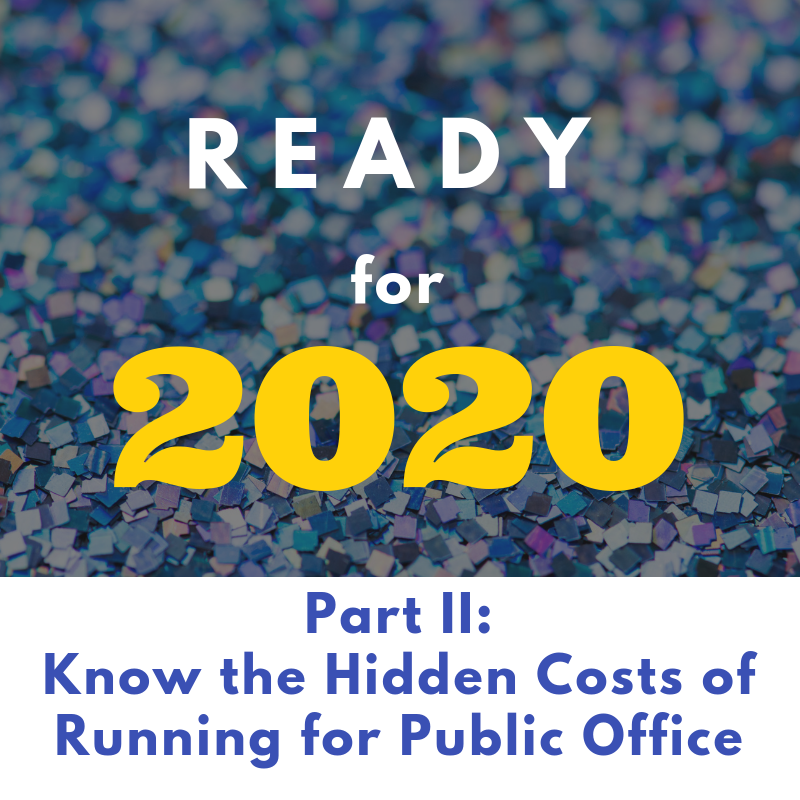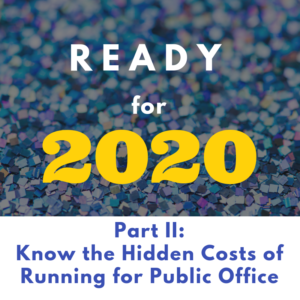
Know the Hidden Costs of Running for Public Office
 For February, Politics Within Politics (PWP) wants to highlight a very important factor in a potential candidate’s decision to run for public office: cost. Every political campaign requires people, resources, and time for a candidate to reach as many voters as possible. There are two types of costs to consider.
For February, Politics Within Politics (PWP) wants to highlight a very important factor in a potential candidate’s decision to run for public office: cost. Every political campaign requires people, resources, and time for a candidate to reach as many voters as possible. There are two types of costs to consider.
The first type is monetary costs. This includes the filing fee to get on the ballot, gas to travel from one community event to another, building a website, and even hiring consultants before a campaign is launched. Last month, the U.S. News Report reported that female candidates do not necessarily need to be wealthy to run for office. What women candidates really need to focus on is doing their homework about the office they are seeking and tapping into networks they already have. Additionally, women candidates should fundraise money as early as possible.
To add on to this article, women of color candidates are in a unique position to also target different community groups. They can leverage ethnic media, help register voters in the native language that they speak, and build platform issues around social and economic disparities among communities of color.
But there are also hidden costs, which should be given equal attention as monetary costs. Those campaign hidden costs include:
- Time spent away from family and friends. Quality time with family and friends will fall through cracks because some campaign duties take precedence. A candidate’s decision to run is a mutual decision with spouses, children, family members, and loved ones. Everyone acknowledges that campaigning is a full time job that requires working after hours and weekends too.
- Loss of privacy. Candidates accept the fact that their personal lives are no longer private. Family members become a part of the campaign by attending events with the candidate and/or posing in campaign photos for the website, social media efforts, and direct mail campaigns.
- Health and mental well being. Candidates and political operatives often sacrifice sleep and personal health. This is where healthy boundaries are essential, which include asking for help, scheduling time to eat, and committing to doctor appointments.
- Giving up employment. Some candidates choose to become unemployed to campaign full time. Not only do they lose potential income earnings, but they also accept the huge risk of losing the political campaign. Chances are employers won’t let former candidates come back to work. This decision could have potential consequences on family members and impact financial savings.
If you are a woman of color who desires to run, take into account both the monetary and hidden costs before launching a political campaign.
What are other types of costs associated with running for public office? Let us know on Twitter: @PoliticsWithin, #PoliticsWithin



Engage us on Facebook
Follow us on Twitter
Tweets by @mymcmedia